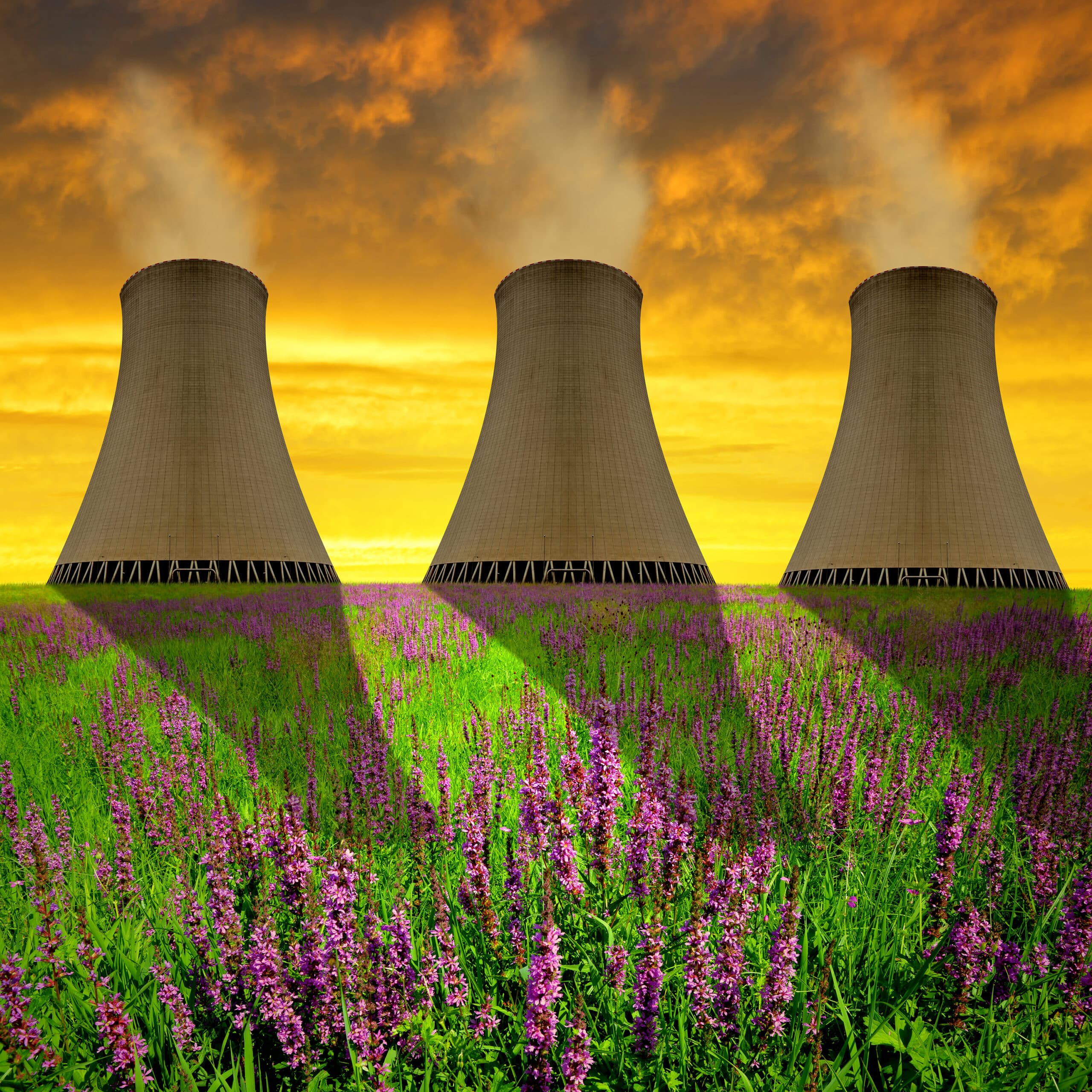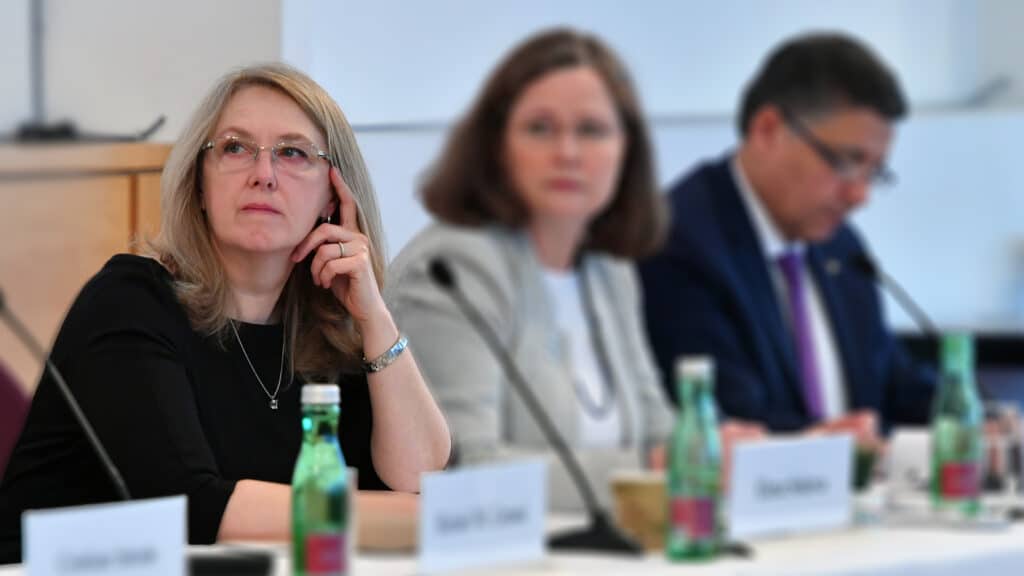Why is nuclear energy a good fit for the UAE?

Interview with Gaetan Deshais, MENA Business Director
Why is nuclear energy a good fit for the UAE?
When considering nuclear energy in the UAE we can look at the benefits and the opportunities from different perspectives. Let’s split these into two groups.
Firstly there are the short term goals that include diversification of electricity sources and production of drinkable water.
The UAE government aims to diversify its sources of electricity due to energy demand growth at 9% per year. Even though it is an oil rich country, burning oil is not very efficient and produces an important volume of CO2 emissions. This explains why burning oil represents the least number of power plants burning fossil fuel around the world. For the same reasons this explains why burning gas grows in preference when looking at producing electricity from fossil fuel in the world. Gas power stations bring the advantage of a lower pollution and lower CO2 emissions compared to coal or oil powered ones. The UAE has very little gas in comparison to oil and would quickly run out and would need to import this resource in case it decided to build more gas-powered plants. Solar comes across naturally to be a good alternative but not as a baseload source of electricity being able to produce electricity only half days and coming with challenges related to sandstorms and dust gathering. In contrast nuclear power offers a reliable source of baseload of energy. Nuclear energy, along with renewables, compose the pillar of the future of electricity in the UAE and together will provide more than 30% of the nation’s energy by 2020.
The modern infrastructure of the UAE and their inhabitants clearly demand a constant reliable source of electricity to handle temperatures ranging between 35°C and 50°C during 6 to 8 months per year. As such it is difficult to imagine a life with electricity cuts and blackouts are certainly not an option. Such blackouts would probably lead to similar catastrophes as seen in France in 2003 during a heat wave that killed nearly fifteen thousands of people, mostly elderly. Producing electricity becomes absolutely vital in such heats and even more in the UAE due to the scarcity of water. In effect electricity becomes more important than water since water is obtained via the use of desalination plants requiring important sources of energy.
It is fascinating that the UAE, being located in a desert, happens to be one of the countries to have the highest water consumption in the world. This makes water production a key consideration by the UAE government in its energy strategy. This is where nuclear energy has a considerable advantage over other energy sources. The coupling of nuclear power and desalination is very efficient because the natural heat residue that a nuclear reactor produces, can be used to power desalination plants. A lower cost of production of desalinated water makes nuclear power yet more attractive than other power sources.
However, I do not think that the UAE would have decided to go ahead with nuclear if they only wanted to produce electricity and drinkable water alone. That takes us to the secondary longer-term objectives of diversifying the whole economy.
In the next couple of years the UAE are going to see an increase of their share of electricity coming from nuclear with the immediate benefits of low pollution and low carbon emissions in line with the UAE efforts to minimise any impact to global warming. This comes with the additional benefit of a reliable source of electricity and water. The almost immediate positive impact will also lead to the additional benefit of being able to export services to the nuclear sector and create a skilled workforce that will help the economy as a whole in the distant future. Nuclear will breed other technologies around it helping lifting the landscape of skills in the UAE.
Ultimately, the UAE will be able to achieve what South Korea has done over the last 50 years following the purchase of nuclear technology from the US. They acquired it, owned it, learnt it, modified it and eventually they were able to sell their own technology to the UAE.
H.H. Sheikh Zayed’s vision
The UAE is a very entrepreneurial country. On the back of His Highness Sheikh Zayed’s vision the UAE have gone a long way and have achieved a lot over the last 40 years.
They have a track record of many successful and highly ambitious projects. The largest indoor ski slope, the Palm – a set of artificial islands, and of course Burj Khalifa – the tallest building in the world. They are not afraid of embarking on big complex projects and investing in them. The vision of being ground-breaking and moving forward is why the UAE government decided to go ahead and build 4 new commercial nuclear reactors – a number equivalent to the total number of reactors being built in the whole of Europe at the moment. That vision, the ability to implement and execute such a vision and the ability to commit for the long term is what drives the UAE to the successful completion of such grand-projects.
Other neighboring nuclear programs: at a different pace.
Saudi Arabia have plans to build more nuclear reactors. Yet their nuclear program is in a far earlier phase. Saudi Arabia have decided to go along with a research reactor first. They want to first have a try at a smaller project in order to learn from it and be fully ready to embark on a much larger project scale. Jordan have also got onto a nuclear program and have taken on the same approach. They have started with a research nuclear reactor project and are putting things in place to shortly move on to a commercial reactor project.
Turkey is another country having engaged with their own nuclear program including first two sites that are Akkuyu and Sinop involving Russian and Franco-Japanese technologies respectively and further down the line a third site that is Igneada involving American technology .
These countries and their nuclear programs share one common point – they all have a strong incentive to develop nuclear expertise as can be seen with the Abu Dhabi Emiratization program.
The most rewarding is within the most challenging part of the program.
One of the biggest challenges for the UAE with their nuclear program is attracting young Emiratis to join the nuclear program and retaining them for the longer term. The government has set up an ambitious and challenging target – in having ultimately a workforce made of 60% Emirati citizens. That is quite a challenge in the short time frame available. In order to become a fully-fledged nuclear expert one needs to commit to an educational program for about 5 years to be followed up by a minimum of 5 years’ experience. There is a lot to learn and this demands a long-term commitment from young professionals. Other sectors in parallel such as Oil & Gas offer arguably more opportunities for promotion and career advancement since these sectors are much bigger. A main challenge is to retain young gifted Emiratis who have embarked onto the nuclear program but whose opportunities for promotion become slimmer the higher they climb the hierarchical ladder.
The significance of nuclear power in the UAE
The UAE Barakah project, even though not fully completed yet, is already seen by many as a great example of success for other Nuclear Newcomer Countries to learn from. In comparison to other nuclear New-Build projects around the world the UAE have been able to progress in a much quicker fashion in line with pre-set milestones. As such Barakah can be considered as far ahead of other nuclear projects taking place in countries with much more nuclear experience than the UAE have had.
All eyes of the nuclear sector are on this project while hoping Barakah will become its best ambassador when it comes to convincing both populations and governments that nuclear has a lot to offer including a reliable, safe and cost-effective way of producing electricity coming with the least pollution and low CO2 emissions.
Through this new flagship project the UAE could prove to the world once more that, with the right vision, best practice and lessons learned from nuclear projects all around the world, ‘all is possible’.
Share this article
Related articles
Help us grow and achieve your potential at a values-driven business.




